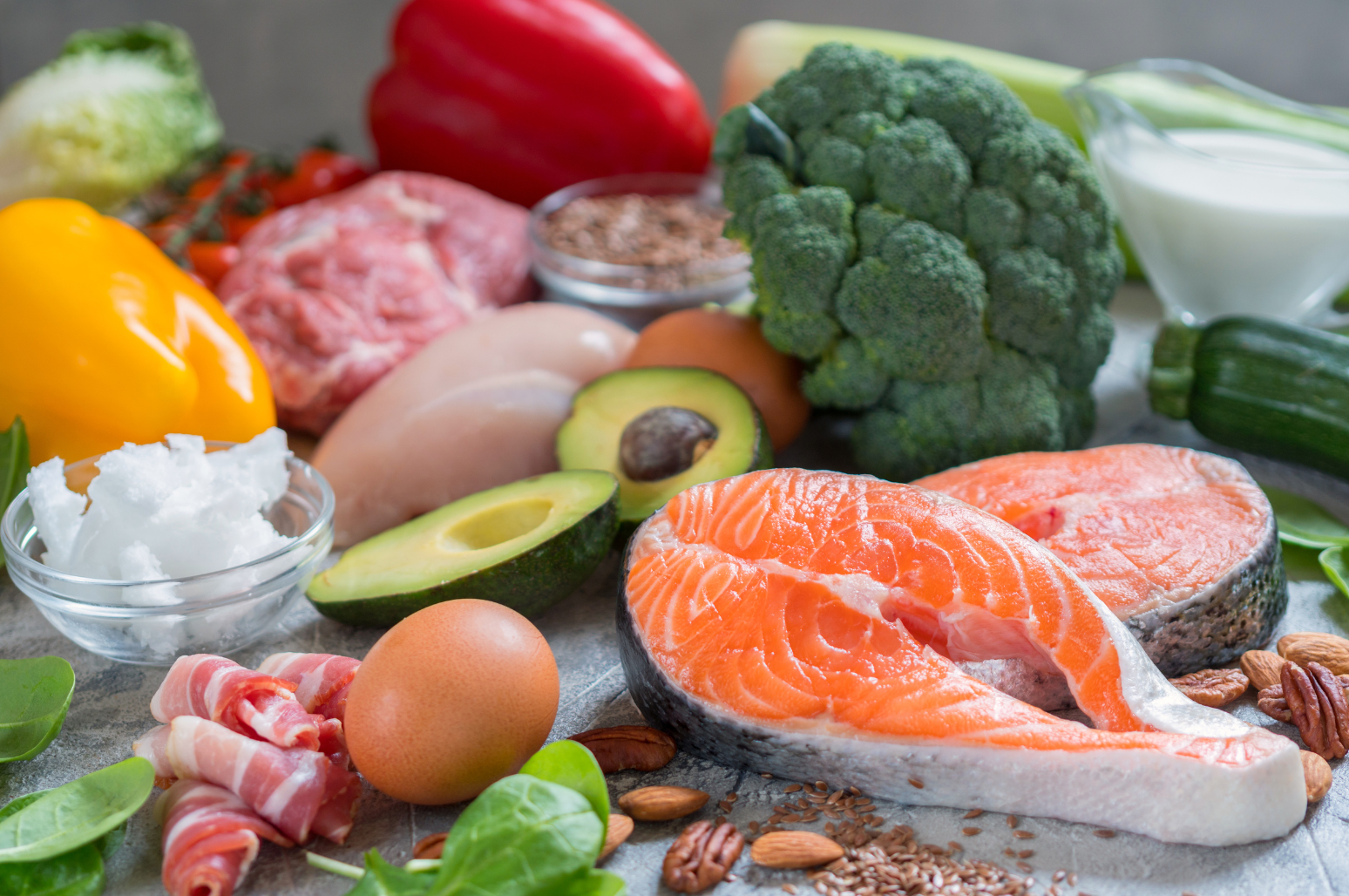Keto Acne: Can the Ketogenic Diet Cause Acne?

One of the biggest and often overlooked factors of skin health is a healthy diet. Although acne is mostly associated with the hormonal changes we go through in our teen years, the truth is that a lot of adults suffer from chronic acne as well. Adult acne can be a result of the dietary choices we make. Let’s take a look at the relationship between the keto diet and acne.
What is Acne?
Acne is a chronic skin condition resulting from complex interactions taking place within the skin. There are different layers of the skin. The sebaceous glands are in the outer layers connected to hair follicles. The sebaceous glands are responsible for producing sebum (an oily substance that lubricates the hair and skin cells). Acne issues stem from this system being impaired.
Diet and Skin Health
What we eat plays a vital role in our skin health. Research has shown that manipulating the diet can be a key solution for certain skin conditions. Using an elimination diet can help pinpoint trigger foods but testing done by a professional is also recommended. [1] [2]

How the Keto Diet Can Help Improve Acne
Clear skin has been one of the top-reported benefits by keto-dieters along with weight loss and improved energy levels. There is some research to back up these claims:
One study showed several benefits from a keto diet that could lead to improved skin health including reduced insulin levels, reduced inflammation and decreased insulin-like growth factor (IGF-1). [3] [4]
When eating a keto diet, you should be eating plenty of omega-3 fatty acids and it is these fatty acids that are key for healthy hair and skin.
How to Maximize the Benefits of the Keto Diet
For individuals that experience a decrease in their skin health, it could be possible that the transition to only keto-friendly foods could be causing a shift in skin health.
For example, the increased intake in dairy products could be a serious problem for individuals that may be unaware of this food allergy.
If you increase your intake of dairy products such as butter, cream and cheese, your skin could react poorly. If this sounds like you, try cutting back on the dairy, get your healthy fats from another source like coconut oil, and see if it makes a difference.
How Can You Maximize the Skin Benefits of the Keto Diet?
If you’re worried about developing acne while following the keto diet, there are a few steps you can take to make sure you’re getting the most bang for your buck.
Be Patient: When it comes to any new transition, especially a dietary one, your body needs time to adapt. If you experience keto acne, give your body and skin some time to adjust to the changes before doing anything drastic.
Increase Your Fatty Fish Intake: Among the keto-friendly foods, fatty fish seems to be one of the most abundant sources of omega-3 fatty acids. This is key for lowering your inflammation and promoting healthy skin.
Avoid Dairy: If you are a new keto-dieter experiencing acne, try limiting your intake of dairy. Dairy products have been shown to increase IGF-1 and insulin which could increase your chances of irritated skin, among other things.
Consume Low-Carb Vegetables: Green, leafy vegetables have been shown to decrease inflammation and improve hormone health and regulation. These are two key factors in avoiding skin issues.
Wondering if the keto diet can improve your skin? While the answer is most likely yes, it’s not guaranteed. Stick to these guidelines and you should be on your way to clearer skin in no time.
References
Titus S, Hodge J.Diagnosis and treatment of acne. Am Fam Physician. 2012; 86(8).
Katta R, Kramer MJ. Skin and Diet: An Update on the Role of Dietary Change as a Treatment Strategy for Skin Disease. Skin Therapy Lett. 2018; 23(1).
Forsythe CE, Phinney SD, Fernandez ML, Quann EE, Wood RJ, Bibus DM, Kraemer WJ, Feinman RD, Volek JS. Comparison of low fat and low carbohydrate diets on circulating fatty acid composition and markers of inflammation.Lipids. 2008 Jan;43(1).
A. Fraser J. Thoen1, S. Bondhus, M. Haugen, J.E. Reseland, O. Djøseland, Ø. Førre, J. Kjeldsen-Kragh. Reduction in serum leptin and IGF-1 but preserved T-lymphocyte numbers and activation after a ketogenic diet in rheumatoid arthritis patients. Centre for Rheumatic Diseases. 2000; 18.









